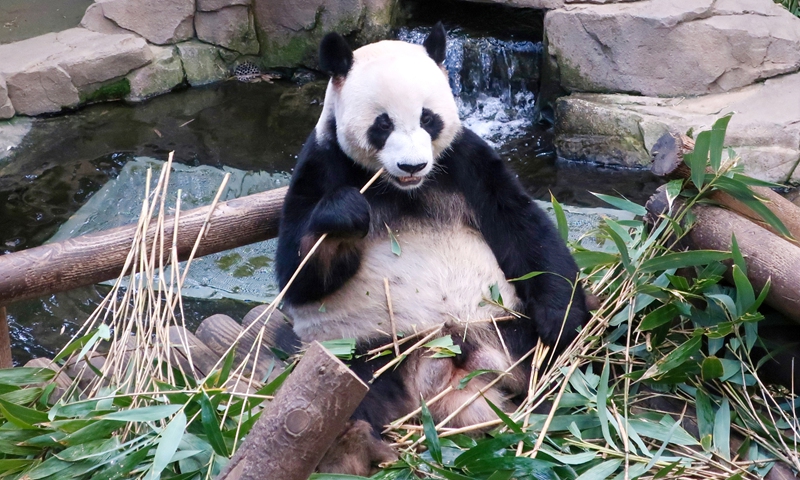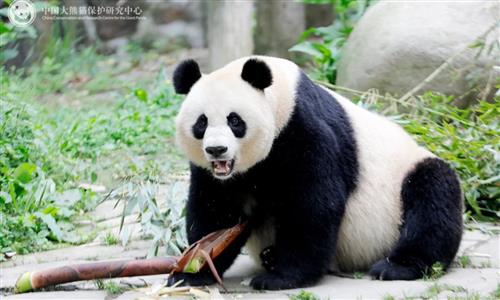National giant panda conservation refute rumors that China lacks supervision over pandas living abroad

Photo: CFP
The national giant panda conservation and research center said on Friday that it has clear requirements regarding the capacity of foreign cooperation agencies that host giant pandas. It requires those foreign agencies to monitor panda health and Chinese expert teams have been deployed to foreign countries to examine each panda's health condition. The statement refutes rumors suggesting that China lacks supervision over cooperating partners, which allegedly makes it difficult for pandas living abroad.
Currently, China has established joint programs on giant panda conservation with 19 institutions from 17 countries. In recent years, China has comprehensively enhances the management of giant panda conservation abroad, continuously improving the international cooperation management mechanisms, strengthen supervision, ensure the living conditions and quality of life of giant pandas abroad, and maintain multiple achievements in international cooperation related to giant pandas, the center said on its WeChat account on Friday.
China has specific requirements for the capabilities and conditions of foreign cooperating institutions. For example, foreign partners are all world-renowned zoos or leading zoos in their respective countries, with excellent public reputation and technical capabilities in animal conservation and research. Foreign institutions must provide the necessary facilities, food sources, technical conditions, and personnel for the breeding, care, public display, disease prevention and control, and scientific research of giant pandas.
China only considers working with institutions that meet the relevant requirements. Before starting cooperation, professional training will be provided to the foreign technical teams, guiding them in developing breeding management systems and emergency plans, the center said.
Under partnership agreements, foreign agencies are required to provide timely monthly, semi-annual, and annual health reports for giant pandas according to Chinese technical standards and time requirements, as well as annual physical examination reports, with Chinese experts analyzing the health status of the giant pandas monthly and conducting regular exchanges and summaries of project progress.
Chinese technical teams are dispatched annually to conduct on-site inspections and evaluations of giant pandas abroad. For giant pandas with health issues, Chinese technical teams will be stationed long-term to assist in the care and disease prevention of the giant pandas, effectively ensuring the health and safety of giant pandas abroad.
Moreover, China and foreign agencies jointly discuss and sign scientific research cooperation plans, and conduct scientific research on giant panda breeding and rearing, disease treatment, epidemic prevention and control, genetic protection, and other aspects.
It is also important to inform the public about the progress of international cooperation on giant pandas and the cooperation situation of giant pandas abroad, and work together with cooperating institutions to promptly respond to the public's concerns about giant pandas abroad, according to the center.
This statement was disclosed following online rumors questioning whether China has sufficient supervision over cooperating partners and whether quality of life for pandas living abroad was at an adequate level.
On Thursday, the center also claimed that headlines suggesting that "Japan abuses the giant panda Shuang Shuang and conducts biochemical experiments" was false.
During Shuang Shuang's stay in Japan, the giant panda received excellent care and made positive contributions to the protection and research of giant pandas between two countries, as well as to the exchange of technology, public education, and the promotion of friendship between China and Japan, the center said.
Shuang Shuang, who had been living in Japan's Kobe Oji Zoo, died of heart disease in April this year, according to an official announcement from the China Wildlife Conservation Association. She was 28.
Global Times

